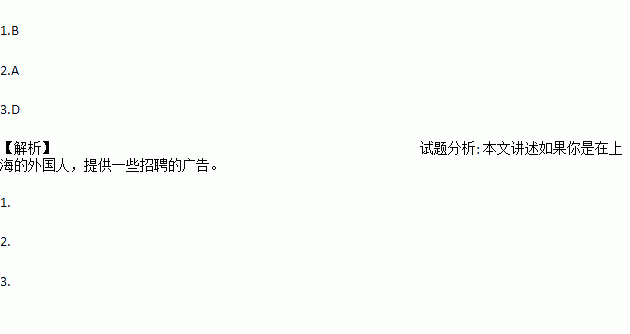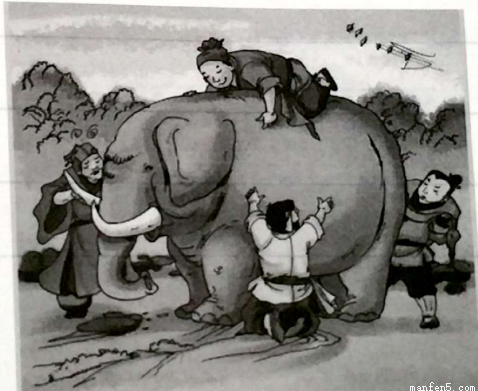题目内容
Are you a foreigner in Shanghai, China, wanting to find a job? Here’s some information for you.
Teaching Job in High School
Description:
High school(students aged 14-18)
12 classes/week
Benefits and Compensation(补助):
Salary: 7,000-8,000 RMB/month
Paid public holidays and winter holidays
Free accommodation with full furniture
Medical insurance
Requirements:
English native speaker
Bachelor’s degree or above
New graduates are welcome
To apply, please send your resume, and one recent photo copy to:___________.
Coffee & Bar Manage Needed
Description:
A big Coffee & Bar in Ganghui Plaza, Xujiahui, Shanghai, is looking for a manager. The Coffee & Bar has about 300 seats; main service is western food and coffee.
Benefits and Compensation:
Salary: 12,000 RMB/month
Requirements:
Male, about or above 30
Speak fluent Chinese
5 years’ experience in restaurant management
If you’re qualified and interested, please send me your resume with picture: swd3rfv@gmail.com.
Office receptionist &Sales Assistant
Description:
We are a well-known tourism company in Shanghai, and started our business at the beginning of 2000.
Responsibility:
Assist the sales manager and sales representatives
Welcome the visitors
Requirements:
Female, 20 to 30 years old
Sales experience will be an advantage, but not a must
If you’re interested, please send me your resume with picture(we won’t accept without it): david@jobsitechina.com
1.
A. The applicants can get medical insurance once accepted.
B. The position it advertised won’t accept females.
C. It mainly serves Chinese food to westerners.
D. It started business at the beginning of 2000.
2.
A. Sending the resume with picture.
B. Speaking fluent Chinese.
C. Having sales experience.
D. To be above 30 years old.
3.
A. Coffee & Bar Manager.
B. Sales Assistant.
C. Office Receptionist.
D. High School Teacher.


